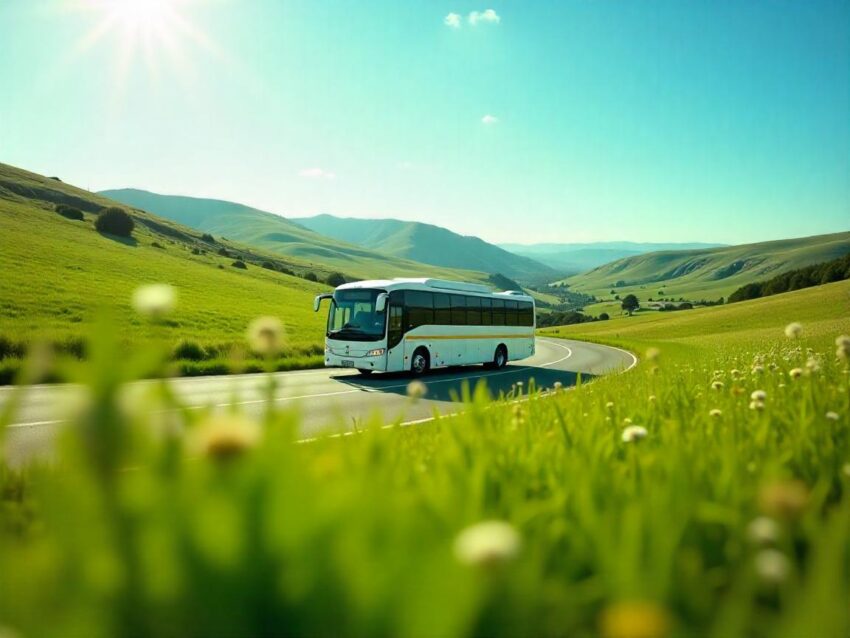Tuesday, July 8, 2025

The United Kingdom is facing a growing transportation challenge as rural bus routes become increasingly expensive to operate, with some services costing over one hundred eighty pounds per passenger. This surge in costs has sparked urgent discussions among regional authorities, particularly in Cambridgeshire, where maintaining essential routes and funding youth travel initiatives like the Tiger Pass are becoming difficult to balance. As local leaders weigh bold reforms—including scrapping fare caps and introducing a franchised network—they aim to protect discounted travel for young people while overhauling inefficient services and ensuring long-term regional mobility.
Cambridgeshire Bus Route Costs Spark Review Amid Calls to Save Youth Fare Scheme
An in-depth investigation is underway into the staggering operational costs of a rural bus route in Cambridgeshire that reached over one hundred eighty pounds per passenger during the past financial year. The findings come as local transport authorities consider making significant changes to how the county’s bus network is managed and how to keep discounted youth travel available into 2026.
Number 15 Bus Route Raises Eyebrows with High Cost
The bus service in question, the Number 15 route between Haslingfield in Cambridgeshire and Royston in Hertfordshire, cost a total of fifty thousand six hundred sixty-eight pounds and sixty-one pence to operate in the twelve months ending April 2025. However, it carried just two hundred eighty-one passengers during that period—translating to a cost of more than one hundred eighty pounds per passenger.
This figure, released by the Cambridgeshire and Peterborough Combined Authority (CPCA), is part of a broader data set made public ahead of a crucial meeting regarding the future of the region’s discounted travel initiative for young people—the Tiger Pass.
Multiple Routes Exceed Fifty Pounds Per Passenger
The CPCA report also highlights several other rural and semi-rural routes that had extremely high per-passenger operational costs in the same year:
- Route 8A between March and Cottenham cost over one hundred pounds per rider.
- Route 13B from Nosterfield End to Linton averaged just under ninety-nine pounds per passenger.
- Route 31 between Cambridge and Fowlmere came in at nearly seventy-seven pounds per passenger.
- Route 26 from Royston to Cambridge cost more than seventy-one pounds per user.
- Route 68 linking St Ives bus station with Boxworth was priced at just under sixty pounds per passenger.
In total, six routes across Cambridgeshire surpassed the fifty-pound threshold per passenger, raising concerns about their long-term financial sustainability.
On-Demand Services Also Carry High Price Tags
The authority also examined three newer on-demand bus routes introduced in January. Although these services did not operate for the full year, they too came with high per-passenger costs:
- South Cambridgeshire’s on-demand route reached one hundred eighty pounds and eleven pence per passenger.
- East Cambridgeshire’s route averaged seventy-four pounds and eleven pence.
- Fenland’s route cost about sixty-five pounds and sixty-eight pence per person.
The data indicates that while these on-demand services may fill important accessibility gaps in remote areas, they remain financially intensive due to lower ridership levels.
Some Services Show Cost Improvement
Not all bus routes in the region experienced high operational costs. The number 18 bus running between Newmarket and Teversham became significantly more cost-effective, with a per-passenger reduction of twenty-seven pounds and ninety-three pence compared to the previous year. Such performance improvements suggest that targeted adjustments and demand analysis could help enhance the overall efficiency of Cambridgeshire’s public transport network.
Tiger Pass Scheme Under Review Amid Budget Pressures
The CPCA’s upcoming transport committee meeting will also focus on the future of the Tiger Pass—a discounted travel program designed to make bus fares more affordable for young people. The current scheme is set to expire this autumn, but officials are now exploring ways to extend it through March next year at a projected cost of two million two hundred eighty thousand pounds.
To fund the extension, the authority is expected to consider removing the locally-funded £2.50 fare cap earlier than scheduled, potentially ending the subsidy in September. Officials suggest this measure could redirect funds toward preserving the Tiger Pass initiative.
The committee is also evaluating whether the youth fare program could become a permanent fixture in the region’s transport offerings.
Bus Network Franchising Plans to be Finalized
In parallel with the fare policy debates, the CPCA is progressing toward a major structural overhaul of Cambridgeshire’s bus system. Under proposed franchising plans, the authority would gain control over critical aspects of the network, including fare structures, routes, service frequency, and operational standards.
If approved, franchising would represent a fundamental shift away from the current deregulated model, bringing the region closer to London-style public transport governance. A final decision on whether to adopt the franchising system is scheduled for a vote at the CPCA board meeting on July twenty-second.
The United Kingdom is tackling soaring rural bus costs that threaten youth travel discounts and regional access. Authorities are exploring bold reforms to protect mobility and improve transport efficiency.
A Balancing Act Between Access and Affordability
As Cambridgeshire grapples with the financial realities of running sparsely-used but essential bus services, the challenge remains to balance fiscal responsibility with accessibility and fairness. The authority’s dual focus on improving value for money while supporting youth mobility through the Tiger Pass reflects the complex priorities of modern public transport planning.
With decisions looming on both the future of regional fare subsidies and a possible transformation of the bus network itself, the coming weeks will be pivotal for the future of rural connectivity and affordable travel in Cambridgeshire and surrounding areas.









